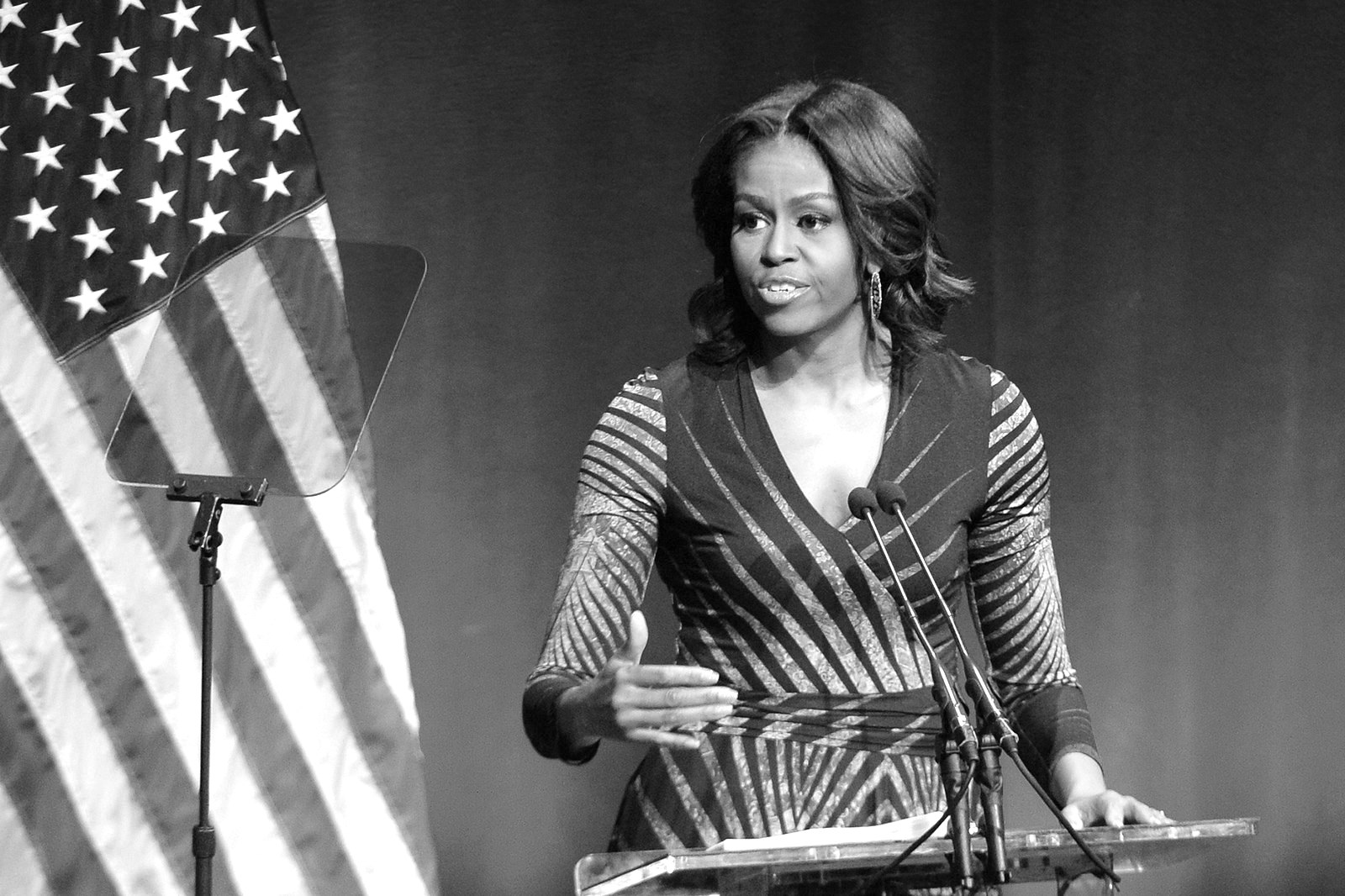
Image: DoD News via Flickr
All throughout Barack Obama’s presidency I tweeted the Obamas like they were family.
In 2008 I stormed the commons of the University of Kentucky’s campus along with my fellow black students because we had a new president, and he was black. As a matter of fact, his whole family was black.
We had made it to the White House, and yet it wasn’t at all clear what Michelle Obama meant to me during those years. Sure, it was cool to watch the clips of their south lawn concerts on youtube, Esperanza Spalding with her afro, bass and brilliance, Janelle Monae with her self assuredness and Jamie Foxx with his jokes, but I still wasn’t sure what it all meant. I just knew that it felt good and as a young black woman I relished the fact that America’s first family looked like my own.
While I even understood, theoretically, the historical implications of the most powerful man in the United States being black and his wife being black as well, beyond that, their presence was just a beautiful backdrop to the rest of my day to day life. In Michelle’s memoir she mentioned that her family’s presence in the white house offered us a “comfort of compassion”. That’s what it was, no matter what else was happening I took solace in at least the leader of my country being competent, and let’s be honest, fly.
“One of the most beautiful things about her story was how healthy, consistent and loving her household was growing up”
It wasn’t until I read Michelle’s 2018 memoir, Becoming, that I realized how important her presence will always be for us as black women. In almost every way that she could offer us an alternate narrative to the one we are constantly presented, she did. As the story so often goes with black women, in order to achieve the heights that Michelle has achieved, we have to overcome an insurmountable amount of trauma and abuse. We have to survive first, reinvent ourselves, heal and then achieve. One of the most beautiful things about her story was how healthy, consistent and loving her household was growing up. She was raised by two attentive parents who, as she put it, “…never took beach trips or went out to dinner. They didn’t own a house. We were their investment, me and Craig. Everything went into us.” How healthy and beautiful. How normal.
It played out similarly in her romantic interactions. Her first kiss arose from curiosity, not coercion. Her high school boyfriend was lovely; emotionally nurturing and stable – but not more important than her broader goals in life – and her relationship and the way it unfolded with Barack was not only something straight out of a fairytale but also salubrious.
Her children were healthy, her mother helped babysit when she needed time to exercise or go out on a date with Barack. When their marriage got bumpy they went and sought out help that aided in them communicating past the problem. Laying her father to rest was done in a healthy, customary way.
“Black girls can be anything. We can be ‘proper’, we can be hood, we can be carefree and happy, we can be anxious and irritable, we can be scholars, we can be twerkers, we can be twerking scholars”
I’m not celebrating this to shame any of us that have gone through any type of trauma (myself included). I’m also not suggesting that Michelle gave us the most intimate view that she could have into her life and that there isn’t nuance that we aren’t privy to regarding her relationships.
A large part of the war that we are raging as black women right now is the right to be seen. To be seen in all of our intersections, beyond the options that the majority present to us, to create our own options. Black girls can be anything. We can be ‘proper’, we can be hood, we can be carefree and happy, we can be anxious and irritable, we can be scholars, we can be twerkers, we can be twerking scholars, we can overcome the most malevolent of situations with beauty and swag and grace. But sometimes, we don’t have too, and that’s ok too.
Throughout the book it became evident that the confidence, grace and innovation that Michelle brought to the role of first lady were characteristics that had been consistently instilled in her throughout her entire life. The way she was showing up was not a facade or performance but in fact it was an authentically confident, well educated, and tall black woman who had always been told by the most important people in her life that she was enough.
Happy birthday Michelle. You are a reminder of what we can be when we are afforded the same stability, visibility and love as the majority. What we can achieve when we have advocates, what we can achieve when we are aware of all of our options. How, instead of having to overcome, we can become.









